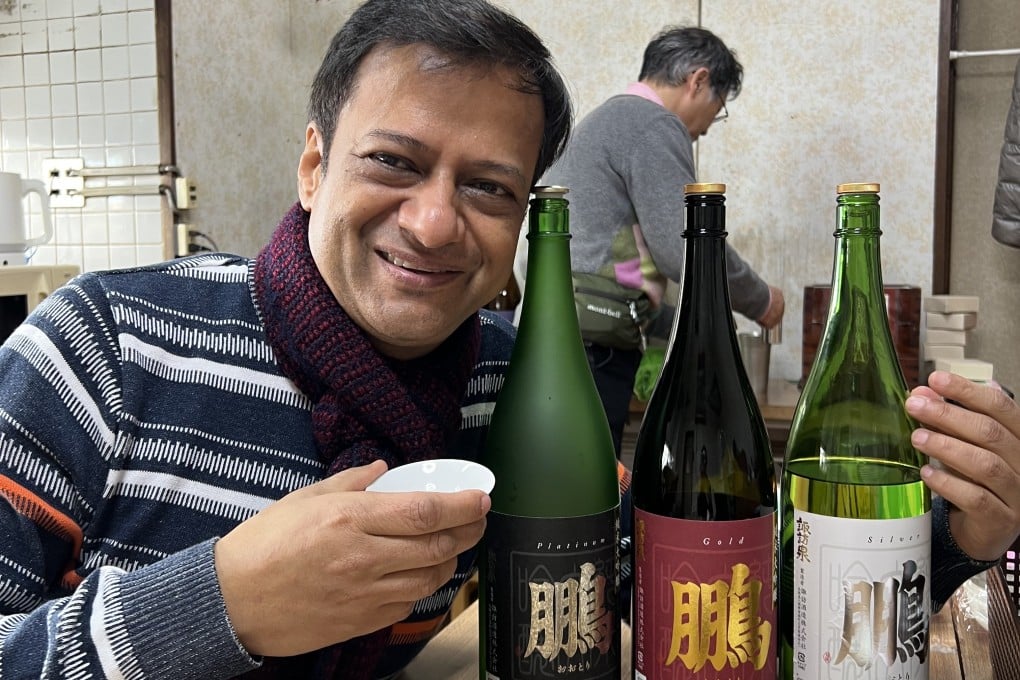Sake finds new fans in India, helped by how it pairs with Indian food – rice-based, umami-heavy and rich, like Japanese food
- Japanese spirit sake is experiencing a boom in major Indian cities like Delhi, Mumbai, Bangalore and Chennai, where more bars and restaurants are serving it
- Enthusiasts say sake’s freshness and versatility make it a better match for Indian food than Western spirits or wines, plus it is lighter and healthier

Prateek Mohanty, a Delhi-based businessman, loves his weekend tipple sessions with his friends. Lately, however, these boozy gatherings have witnessed a twist. Instead of featuring whisky, beer and vodka, the group’s repertoire increasingly includes bottles of sake.
“I love the refreshing taste of sake, which is lighter, healthier, and can also be paired with Indian food,” says Mohanty. “My friends enjoy it too; our favourites are the Hakushika Junmai Taru sake and the Hakutsuru Junmai.”
Sake – rice alcohol made from rice, water, koji (rice mould) and yeast – has a 2,000-plus year history and is an intrinsic part of Japanese culture.
The drink is now finding fans in India. A growing Japanese expat community, more travellers looking for culinary experiences, increasing imports of sake, more restaurants offering it, and independent sommeliers organising tasting sessions have all fuelled the sake trend.

“There’s a palpable interest in sake across India. The versatile and mellow drink can be paired with richer, fattier and often dairy-based Indian food, which has helped its popularity,” explains Ravi Joshi, co-founder of Sake Club India (SCI).
“Indians too, are used to a rice-based, umami-dense diet, so they are able to better appreciate sake.”
